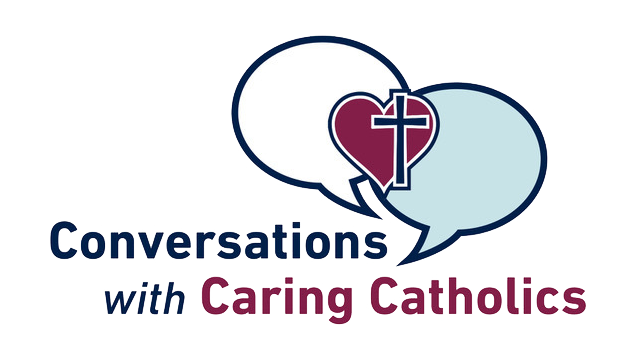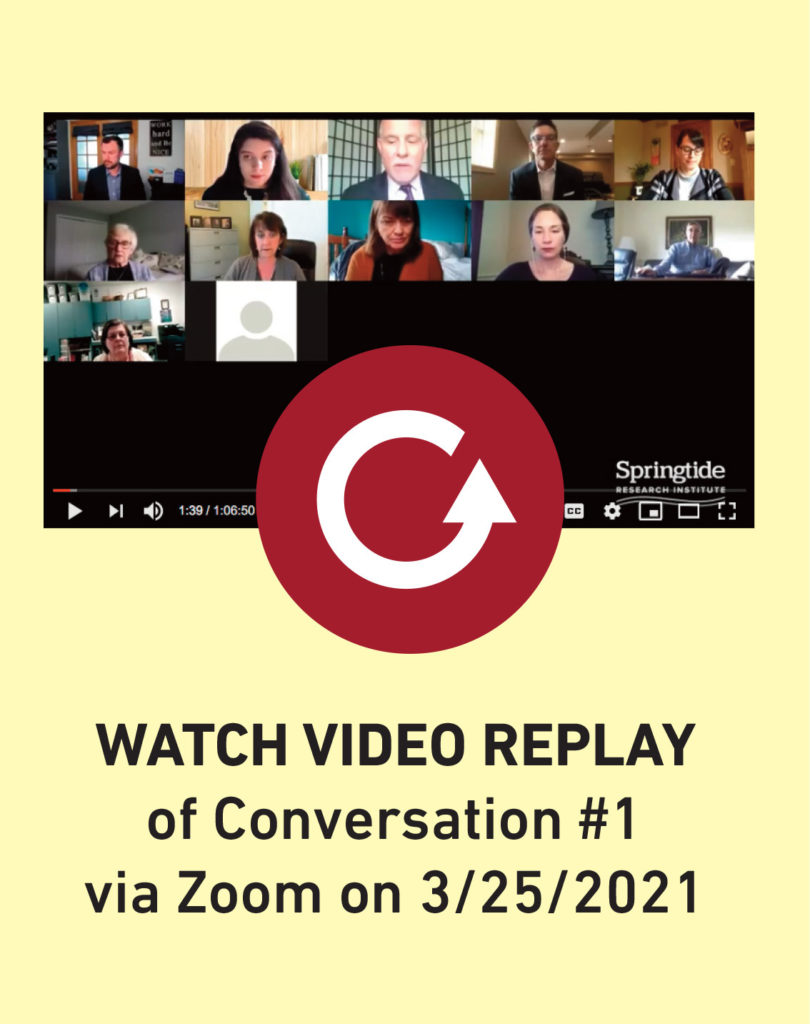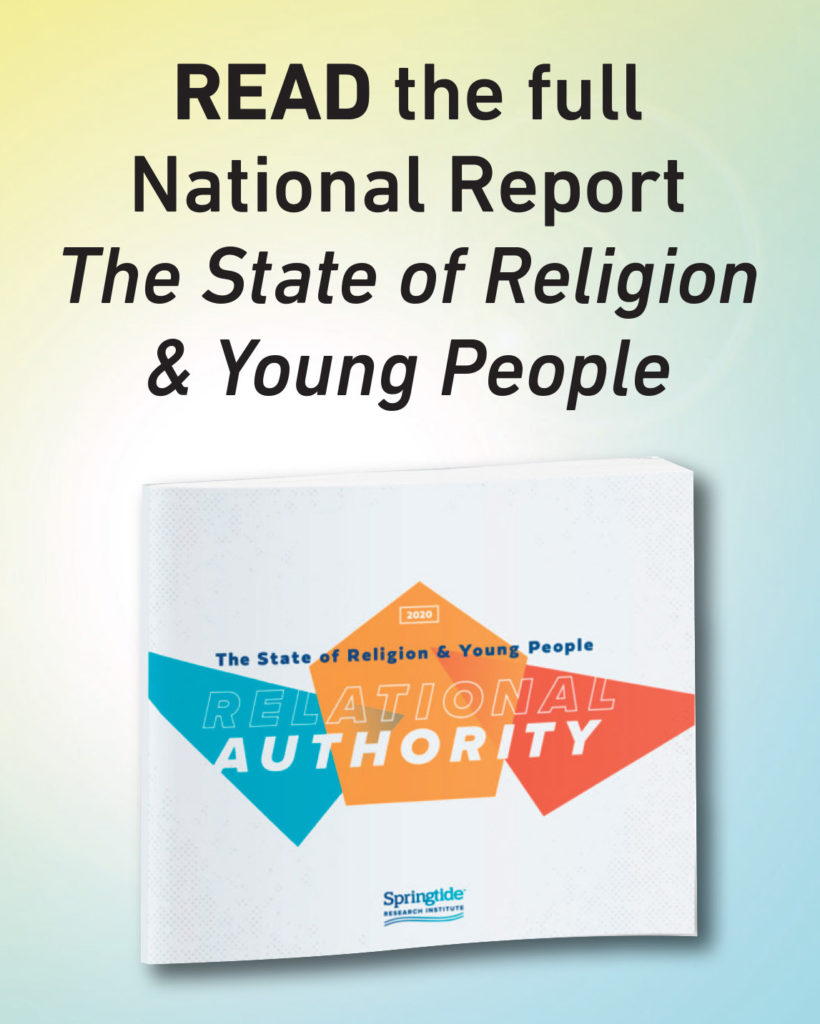
Generation Z doesn’t trust institutions, including religion. When asked in a recent survey to which religion they belong, 39 percent of 13-25-year-olds responded, “None.”
It’s a stark finding, one of many found in the Springtide Research Institute’s new report, “The State of Religion & Young People 2020: Relational Authority.” It also formed the backdrop for a productive conversation about connecting with young people and energizing their faith, one that hopefully marked a beginning.
The Catholic Foundation of Eastern Pennsylvania began its new “Conversations with Caring Catholics” series by hosting Dr. Josh Packard, executive director of the Springtide Research Institute, and several Lehigh Valley Catholic leaders in a virtual forum. Packard presented results from the report, which examined more than 10,000 surveys and 160 interviews to dissect how young people from 13-25 express and respond to faith.
RELATED MEDIA: Video Replay of March 25, 2021 Conversation BELOW.
RELATED MEDIA 2: Link to full Springtide Research Report BELOW
The report went beyond statistics, though, to offer practical approaches religious leaders can take to connect with Generation Z. One key, according to Springtide, is to practice “relational authority.” Simply put, relational authority encourages leaders to listen, be transparent, show integrity, be caring and use their expertise to develop better relationships with young people.
“The trick with Generation Z isn’t to show them how great the world that you know is and try to attract them over to your life, because more often than not, they’re just going to reject that because of their mistrust of institutions,” Packard said. “The trick is to try to stay involved in their conversations for as long as they’ll have you.”
Lehigh Valley Catholic leaders who participated in the program are putting those recommendations into practice. Dr. Brooke Tesché, Secretary for Evangelization, Education & Formation and Chancellor of Education for the Diocese of Allentown, took note of one particularly startling statistic. When asked whether they have adults in their life they could turn to if they needed them, only 17 percent of young respondents cited teachers. Nine percent said coaches, and eight percent said religious leaders. Dr. Tesché wants to change that.
“You’re talking about a paradigm shift not only in schools, but in parishes and the community,” Dr. Tesché said. “It’s inspiring to know that, with everything we have been thinking about, we have some really great data to help drive some of the initiatives that we’re working on. So, [this report has] been really reaffirming about the planning that we’re doing in the Diocese.”
Dr. Tesché echoed Springtide’s findings to add that, “we can’t necessarily do everything we once did.” To develop deeper relationships with Generation Z, Catholic leaders “really have to prioritize everything we’re doing,” she said.
Part of that requires thinking small. Maggie Riggins, Director of Young Adult and Campus Ministry in the Diocese of Allentown, has been practicing relational authority with students and found that meeting them individually and building relationships incrementally has proven successful in developing trust. Through those meetings, she found students who sought spiritual direction, wanted to share ideas or “just wanted to get to know me, which was really sweet.”
“It’s a smaller type of experience, not a big program,” Riggins said. “So, we have to get turned into the smallness of what relational authority is.”
Riggins also described a series of listening sessions she conducted in March in which she asked young people questions, asked them how the church might respond and then “just lovingly listened.” For young people, Riggins said, it’s important to be noticed, named, and known. After that, it’s important that the Church responds to their needs.
“This is where the expertise comes in,” Riggins said. “How are we going to respond ministerially, pastorally and religiously to the things that they said they need and desire and want in their lives within and through the Catholic Church?”
The Catholic Foundation wants “Conversations with Caring Catholics” to be a continuing forum for Catholics to explore the future of their faith. During the past three years, the Catholic Foundation has communicated with thousands of Catholics in the community to understand more about the Catholic causes that are important to them and how they may be sustained financially for the future with endowment funds.
“Along the way, we discovered there are various challenges, other than financial, that may affect the future of Catholic causes,” Pete Waldron, president of the Catholic Foundation, said. “By encouraging conversation, people will be more aware of the challenges facing Catholic institutions and feel compelled to help bring about solutions that will strengthen and sustain Catholic causes in the long run.”
— Published April 1, 2021


